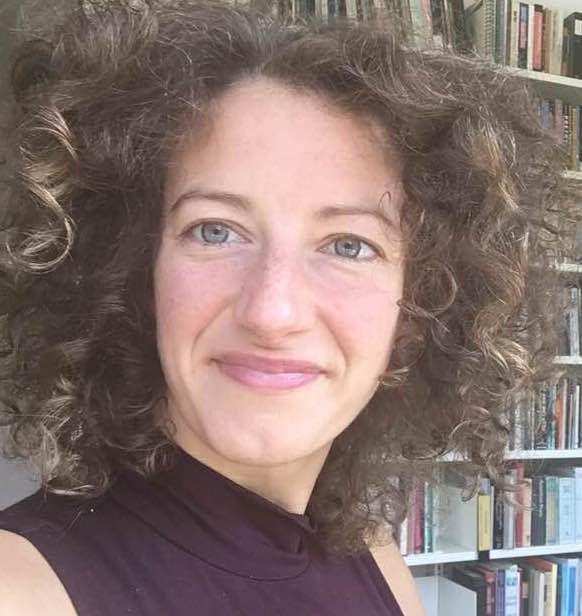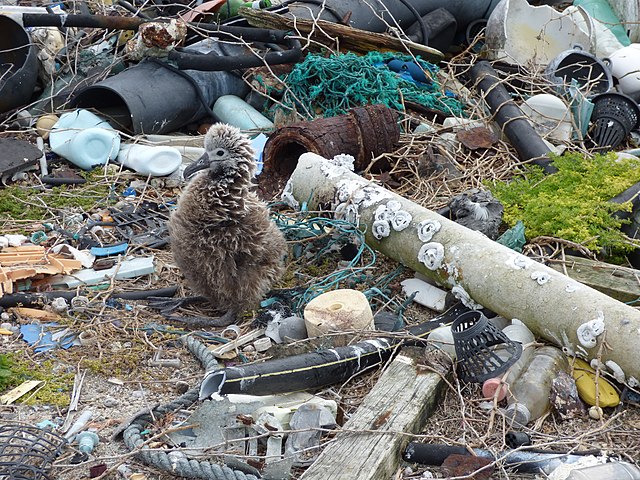Genevieve Pfeiffer
2021-2022 *This Is Not A Drill* Student Fellow

Genevieve Pfeiffer is a graduate student in Experimental Humanities & Public Engagement at NYU, and received their MFA in poetry from Sarah Lawrence College. Their poetry manuscript was a finalist for the Baltic Chapbook contest, and their poetry is forthcoming or published in Salamander, About Place, Juked, and others. At NYU, Genevieve is studying ideological shifts around birth control and abortion, and their entanglement with nature and culture.
PROJECT

Albatross chick in garbage pile
Intimate Garbage
‘Intimate Garbage' is an assemblage of printed original poetry, plastic discards, fresh-cut flowers, and printed facts about plastic discards. The short poems as well as the plastic discard facts (ideally 25 words, no more than 100) would be printed separately on numerous small papers. Some poems or facts may be written onto plastic donated (usable, safe, and clean) plastic discards. The facts would address plastic and its contribution to the climate crisis. The poems, facts, and discards would be arranged in the exhibit space, and then fresh-cut flowers would be arranged adorning the assemblage.
Ideally, this exhibit would be interactive so that people could touch and smell the flowers, move them, and move the (clean, safe!) discards. Over time, the discards would become more prominent. Viewers would be prompted to search of the printed poems or facts. Such a juxtaposition of decaying life, placed among the non-decaying plastics, would draw attention to the disparity that plastics are creating, and highlight the necessity of decay.
While the arrangement may not abide by common concepts of beauty, the poems hidden within the arrangement will provide other types of beauty and hope among the ruins.
The juxtaposition of fresh-cut flowers with plastic discards aims for multiple considerations and reflections. I hope that people will (re)consider not only concepts of beauty and the necessity of decay, as well as the labels of ‘weeds’ versus ‘flower,’ but also the role of time and technology in a harmonious ecosystem. While plastics have become an invisible backbone of our everyday and take little if any time for us to consider, each plastic object remains entangled with us and the multispecies environment hundreds of years after we have forgotten it (if we ever stopped to consider it).